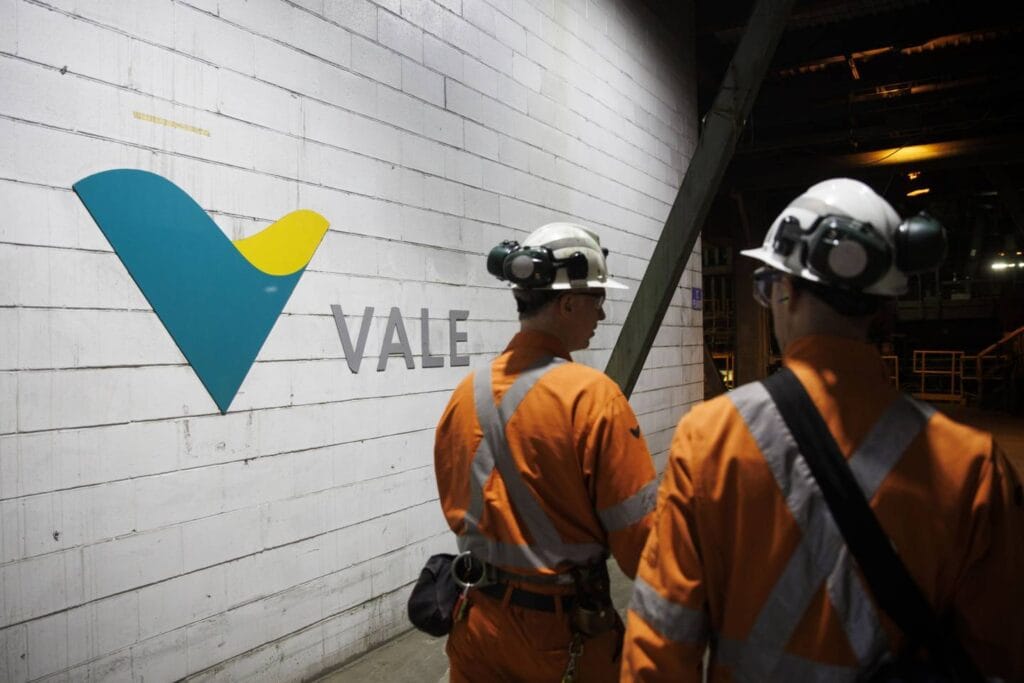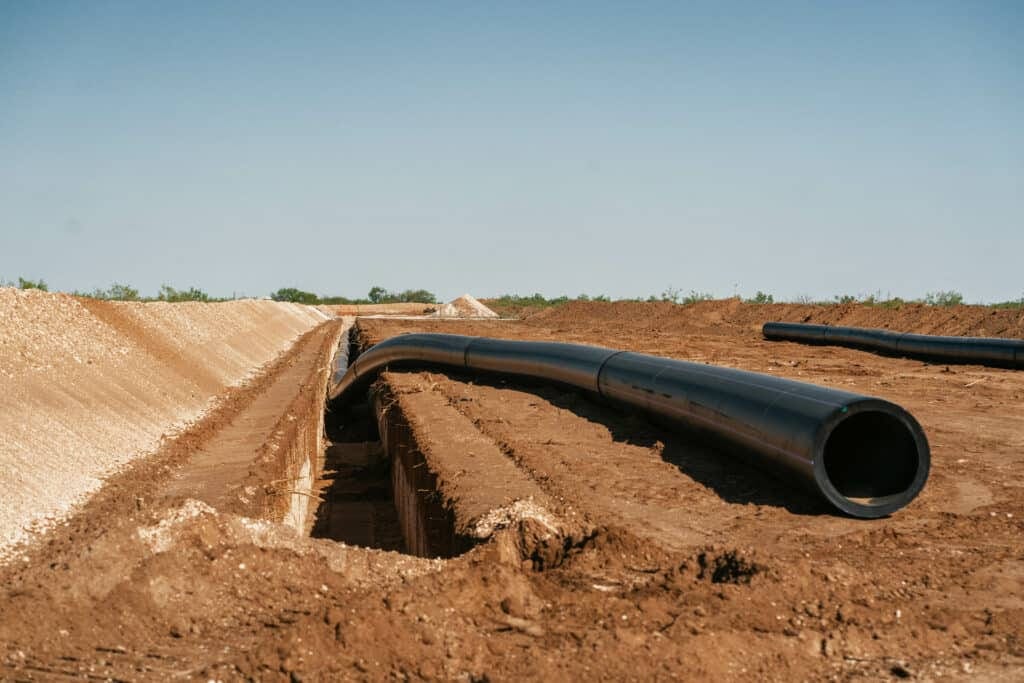Vale S.A. is a Brazilian multinational corporation that is one of the largest producers of iron ore and nickel in the world. As a significant player in the global mining industry, Vale operates in more than 30 countries, producing minerals and metals critical for various industrial applications. This blog post offers a detailed examination of Vale Mining, including its history, operations, environmental efforts, market position, and future prospects. dcpipe pipeline expert

Historical Background
Vale was founded in 1942 by a group of Brazilian entrepreneurs under the name “Companhia Vale do Rio Doce” (CVRD), which translates to “Sweet River Valley Company.” Initially established to exploit the rich iron ore deposits in Brazil’s Minas Gerais state, Vale quickly grew into a major player in the global mining sector.
Following a series of privatizations in the late 1990s, Vale transitioned into a corporation known for its substantial investments in technology and innovation. Over the decades, the company expanded globally, acquiring assets in various countries and diversifying its mineral portfolio beyond iron ore and nickel to include copper, coal, fertilizer, and precious metals.
In 2007, the company formally changed its name to Vale S.A., reflecting its broadened operational scope and commitment to international markets. The company has continued to grow, navigating various economic challenges and maximizing opportunities to become a key player in various mineral sectors.
Operations and Production
Vale operates an extensive global network of mines, processing plants, and logistics operations. The company’s primary focus is on the production of iron ore and nickel, representing a significant portion of its revenue.
Iron Ore Production
Vale’s iron ore production primarily comes from the Carajás Mine in the Amazon, which is one of the largest and richest iron ore deposits globally. The company is also involved in the production of iron ore pellets, which are critical for steel production. The remote location of these mines necessitates a well-developed logistical network, including railways, ports, and shipping operations.
Vale has invested heavily in technology to optimize its operations and reduce costs. The adoption of automation and digitalization has led to increased efficiency and production capacity. Vale’s team is continually working to enhance its mining methods, including the development of low-impact mining technologies designed to minimize harm to the environment.
Nickel Production
Vale is also a leading producer of nickel, crucial for manufacturing stainless steel and batteries for electric vehicles. Key nickel operations are located in Canada, New Caledonia, and Indonesia. Vale produces several nickel products, including nickel briquettes, nickel matte, and nickel sulphate, catering to various markets and applications.
The nickel market is undergoing significant changes with the growth of electric vehicles, which require batteries with nickel components. Vale’s commitment to sustainability and innovation in nickel production aligns with the global shift toward green technologies.
Other Minerals and Diversification
Aside from iron ore and nickel, Vale has diversified its portfolio to include copper, coal, fertilizer, and precious metals. The company’s copper operations, located primarily in Brazil, and its coal operations in Australia, have become essential components of its overall production strategy. This diversification mitigates risks associated with fluctuating global commodity prices, enabling Vale to maintain profitability despite varying market conditions.
Environmental Responsibility and Sustainability Initiatives
Vale recognizes the importance of sustainability in its operations and the mining industry as a whole. The company has made significant commitments to reduce its environmental footprint, including ambitious goals to achieve carbon neutrality by 2050. Vale aims to implement several strategies to reach this target, such as:
- Reducing Greenhouse Gas Emissions: Vale is investing in research and development for technologies that minimize carbon emissions from its operations. This includes transitioning to renewable energy sources and enhancing energy efficiency.
- Water Management: The company is committed to responsible water management practices, implementing strategies to reduce water consumption and recycling water within its operations.
- Biodiversity and Land Rehabilitation: Vale undertakes initiatives to restore and rehabilitate areas disturbed by mining activities. The company collaborates with NGOs and local communities to promote biodiversity and sustainable land use.
- Waste Reduction: Vale is actively working on waste minimization and management strategies, including tailings management, to ensure that mining processes have minimal environmental impact.
- Community Engagement: Building strong relationships with local communities is essential for Vale. The company engages in dialogue with stakeholders, supporting local social and economic development initiatives.
Market Position and Competitive Landscape
As one of the largest mining companies globally, Vale competes with other industry giants such as BHP, Rio Tinto, and Glencore. The company’s market position is strengthened by its diverse production capabilities, extensive logistics network, and commitment to sustainability.
Vale’s leadership in the iron ore and nickel markets is expected to continue, especially as demand for these minerals grows, driven by industrialization, urbanization, and the transition to renewable energy sources. The electric vehicle market, in particular, is anticipated to create increased demand for nickel, positioning Vale advantageously in the evolving energy landscape.
Future Prospects and Challenges
Looking ahead, Vale faces both opportunities and challenges. The ongoing transition toward sustainable energy sources presents an opportunity for growth, particularly in the nickel segment. Governments and companies worldwide are increasingly focusing on reducing carbon emissions and investing in clean technologies, ostensibly benefiting Vale as a key supplier of critical minerals.
However, Vale also encounters challenges, including regulatory scrutiny, fluctuating commodity prices, and increasing competition. The mining industry is under intense scrutiny regarding environmental practices, necessitating that Vale stay ahead of regulations and demonstrate its commitment to sustainability.
Additionally, the potential for supply chain disruptions, geopolitical risks, and market volatility must be managed effectively. Vale has demonstrated resilience in navigating these challenges, but continued adaptability will be crucial for the company’s sustained success.
Conclusion
Vale Mining stands as a cornerstone of the global mining sector, heralding a legacy of growth and innovation. With its extensive operations in iron ore, nickel, and other minerals, coupled with a commitment to sustainability and responsible mining practices, Vale is uniquely positioned to tackle the challenges and opportunities of the future. As the world continues to evolve in response to environmental concerns and technological advancements, Vale’s proactive approach will be instrumental in shaping its trajectory within the competitive landscape of the mining industry. dcpipe pipeline expert

